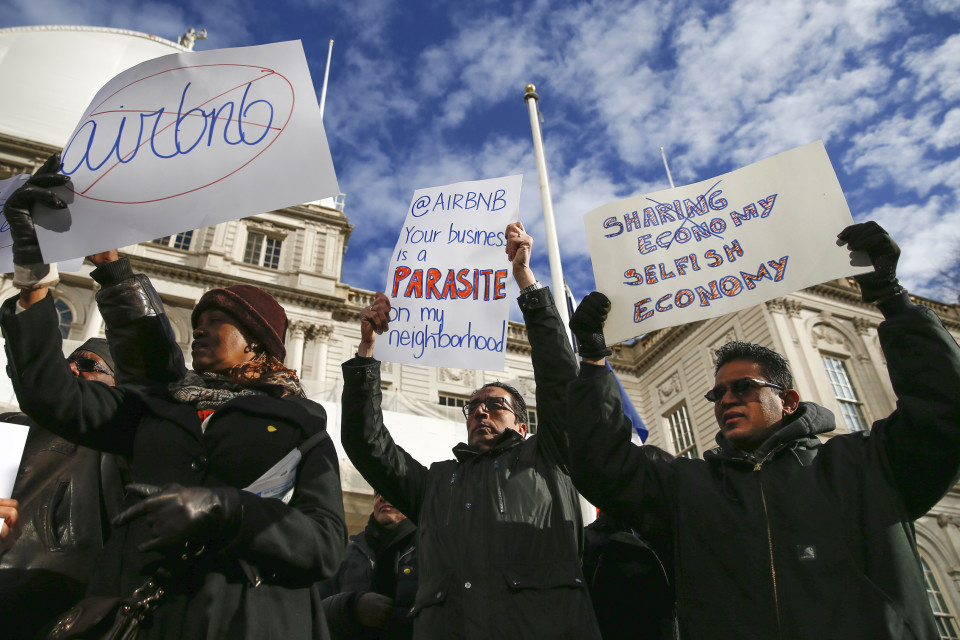In a blow to Airbnb, New York state on Friday enacted a new law that prohibits the advertising of illegal short-term rentals.
Under the statute, signed into law by Governor Andrew Cuomo, tenants or owners cannot advertise their full residence for rental for less than 30 days. Those in violation face a fine of $1,000 for the first offense, $5,000 for the second, and $7,500 for the third. However, the law won’t apply to those trying to rent out a spare or shared room.
Those supporting the measure argue that websites like Airbnb hurt both the hotel industry and New York City’s housing market. “Today is a great day for tenants, seniors, and anyone who values the safe and quiet enjoyment of their homes and neighborhoods. It is also a huge victory for regular New Yorkers over the interests of a thirty-billion dollar corporation,” Manhattan Senator Liz Krueger, a co-sponsor of the bill, said in a statement. “For too long companies like Airbnb have encouraged illegal activity that takes housing off the market and makes our affordability crisis worse.”
Meanwhile, Airbnb aired frustration with the law, saying it would file a lawsuit to fight it. “In typical fashion, Albany backroom dealing rewarded a special interest—the price-gouging hotel industry—and ignored the voices of tens of thousands of New Yorkers,” Josh Meltzer, Airbnb’s head of public policy in New York, said, as quoted by the Associated Press.
Airbnb had undertaken previous measures to try and thwart the law. In July, the company poured $1 million into a political action committee called Stronger Neighborhoods in order to make voters aware of its legislative battles. And asQuartz points out, Airbnb last month held a summit for New York City hosts and encouraged them to write the governor “about why you love hosting.”
Enforcing the new law will prove to be a challenge, since a 2010 measure already prohibited rentals of 30 days or fewer when the owner or tenant is absent. In October 2014, a report issued by New York Attorney General Eric Schneiderman found “widespread illegality” across Airbnb’s New York City listings. According to Schneiderman, as much as 72 percent of Airbnb reservations made from 2010 to 2014 violated New York law.
But now, as opposed to having to determine where illicit rentals are occurring, officials can monitor Airbnb for any listings that break the law. Assemblywoman Linda Rosenthal said that the law’s intended to target operators who rent out large numbers of empty units in buildings that house many apartments. “That’s who we’re targeting,” she told AP.

